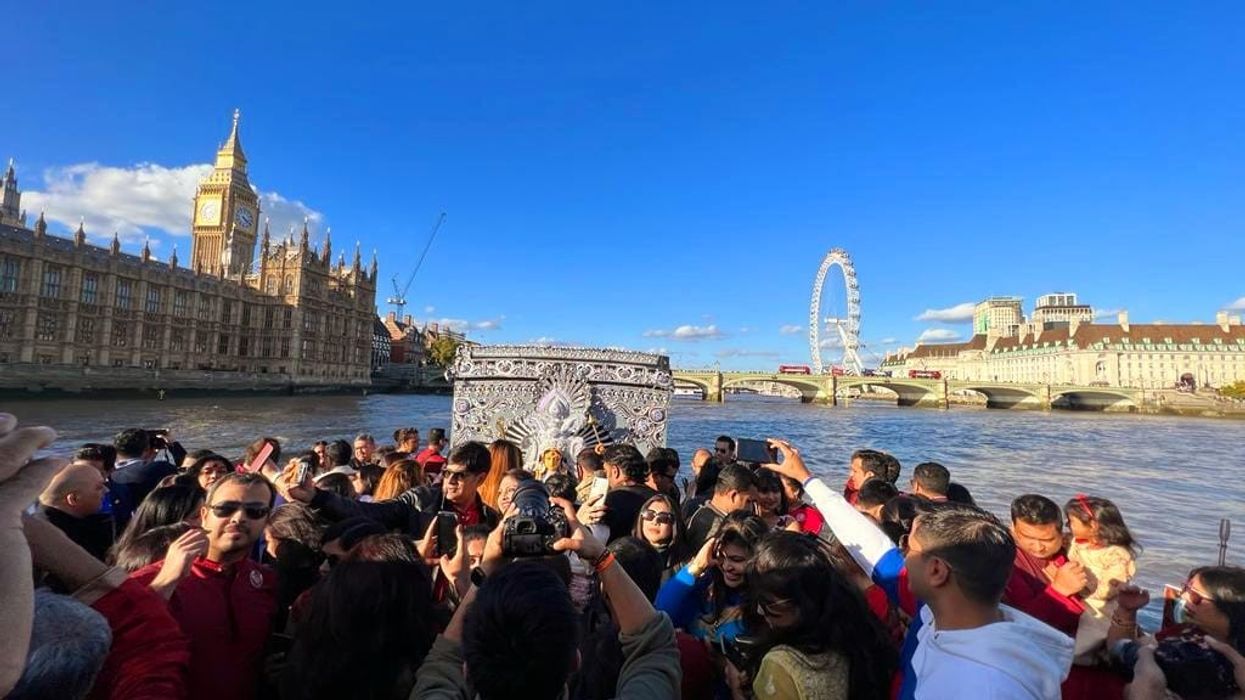Civic leaders, MPs, experts and senior doctors have warned that the UK is sitting on a “ticking time bomb of disparities” among south Asian and black communities.
They told Eastern Eye that the 2021 census figures, released on Tuesday (29 November) should raise concerns among government.
They urged ministers to put more money into non-white communities.
The data shows that in England and Wales just over 18 per cent are non-white, a rise of four per cent on 10 years ago.
Asians make up almost 10 per cent of England and nearly three per cent of Wales, making them the country’s largest minority group.
Leicester and Birmingham become the first cities in the UK to have a majority ethnic minority.
Almost 41 per cent described themselves as white in Leicester, while it was nearly 49 per cent in Birmingham.
“The Covid pandemic has just highlighted the extent to which there are very real health disparities and outcomes that are undoubtedly adversely affected by people's their ethnicity,” said Sir Peter Soulsby, the elected Labour mayor of the city.

“That message needs to continue to be made to a central government that the city needs the resources necessary to cope with trying to redress the disadvantages.
“Above all else we need the money to provide public services.
“In our case, we’ve lost well over 100 million pounds of services every year as a result of so-called austerity.
“Of course, the messages from the government are that austerity is going to get worse over the years ahead, not better.
“The impact on local government services is very real, but it's equally the case that our health services are under pressure as well.”
The pandemic revealed that south Asian and black people were disproportionately affected by the virus.
Reverse cuts
The Leicester East MP, Claudia Webbe, urged the government to consider what the census means for her constituents.
“Our population in Leicester is ageing, with an increase of 17 per cent in the number of people over the age of 65.
“Our largest age group is aged between 50 and 54 years – compared to 30 and 34 years as an average across England, and Leicester East has the highest population density in our region.
“At the same time, the 11 per cent increase in our young population under-15s is well ahead of the England average, highlighting the need for proper investment in schools and services for children and young people.
“None of this has been reflected in the level of financial support for Leicester.
“Both the City and County Council have seen massive cuts in funding since the Conservatives came to power, with no sign of any slowing of that trend for the foreseeable future.
“Cuts to services need to be reversed and backdated across all age groups and communities adequately resourced going forward to properly cater for the diversity of Leicester East.”
The Office for National Statistics (ONS) analysed the data.
“The largest increases were seen in the number of people who identified their ethnic group within the “Asian, Asian British or Asian Welsh” category (9.3 per cent, 5.5 million in 2021, up from 7.5 per cent, 4.2 million in 2011) and within “Other ethnic group” (2.1 per cent, 1.3 million people in 2021, up from 1.0 per cent, 564,000 in 2011),” it wrote on its website.
“There are many factors that may be contributing to the changing ethnic composition of England and Wales, such as differing patterns of ageing, fertility, mortality, and migration.
“Changes may also be caused by differences in the way individuals chose to self-identify between censuses.”
Health disparities
Doctors’ leaders, such as Chaand Nagpaul, former British Medical Association chair, warned that the growth in south Asian numbers meant that the government could not adopt a one-size-fit-all approach to health care.
“By actually not providing culturally tailored and sensitive care to the diverse population, it will only backfire on the health service in terms of excessive demand on its limited resources,” said the chair of the BMA’s Racial & Ethnic Equality Forum.
“In terms of that, we've already known about the health disparities for decades now, and we saw that particularly through the pandemic.
“So, the policies at local and national government must change to create culturally specific, culturally competent, and the understanding that not one size fits all, and it has to be implemented from the training straight through to the delivery.”
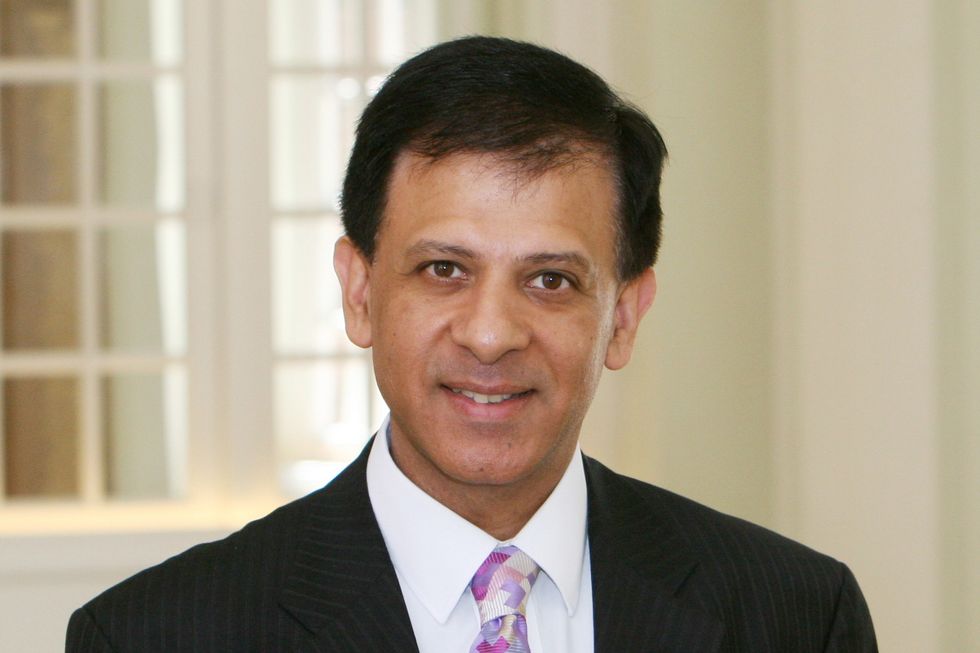
Nagpaul told Eastern Eye that the census figures showed that doctors needed to be aware of the differences in treating non-white patients from the moment they started their training.
“We know that certain ethnic groups are less likely to visit their GP for issues, such as mental health.
“Some findings show that south Asian women will actually wait till they go back to their home country for a health check rather than go to see a doctor here, and that means their health is not being cared for.
“We have examples that ethnic minorities have delayed cancer diagnoses because of their reluctance to present.
“That’s also true for dementia.”
The former doctors’ union leader also explained how the pandemic demonstrated how the profession needed to change the equipment which diagnoses diseases.
“As Britain becomes more and more diverse, that's going to be really, really important.
“For example, when we teach medical students different skin diseases in dermatology, the pictures shown are on white skin.
“In fact, many of these conditions are very different on dark skin.
“Even when it comes to the use of technology, the pulse oximeters that were very prevalent during COVID, and they've always been an important part of measuring oxygenation of the blood, don't measure as accurately the oxygen levels in dark skinned individuals because they were designed for fingers.
“They underestimate hypoxia [low oxygen levels] for non-white patients.”
Resource implications
Professor Sabu Padmadas is an expert in demographics and associate dean international at the University of Southampton.
“It will have definitely have resource implications on education and health primarily,” he explained.
“We see that as a country we’re trying to address the inequality gap, and there are certain elements of poverty, for instance, energy poverty so those are the sectors that will be affected.”
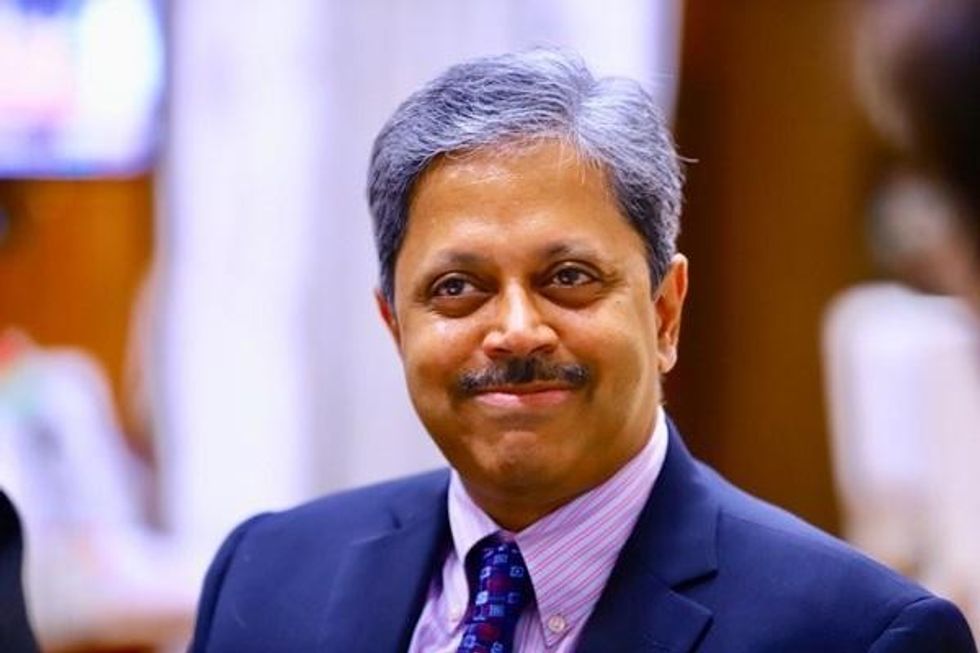
Padmadas suggested that the government needed to do a deep dive into the data and make policies accordingly.
“Whatever growth that we are going to see in the next couple of years will be driven more by migration than by fertility, for instance,” he continued.
“Therefore, in terms of preparing for the future, the government will need to really pay attention to the data very carefully, have debates about these data.
“There might be reporting biases, there might be estimation biases, and so on, so we'll have to tread with caution.
“In the wake of COVID, we have seen considerable structural inequalities affecting people, ethnic communities, particularly.
“So, this is the right moment, for the UK government to consider making kind of some radical reflections and changes on policies.”
For Leicester’s mayor, the new figures argue his case for more resources.
“An underfunded hospital system in Leicester, for example, has recently found itself downgraded from being satisfactory to requiring improvements.
“They are under tremendous, and in many cases, intolerable pressure that undoubtedly hits those who need the help most.
“There are also real pressures in our schools education system as well.
“My message to government is that we need the funding to provide services that are required by our very diverse communities.
“Over the last decade or more, we’ve seen those services facing further cuts, and the government continues to tighten the screws.”
Analysis
“Britain will change … but not without a struggle”
The census shows the challenges ahead for the UK, writes Barnie Choudhury.
What is clear is that the UK has become more racially diverse.
The contribution of former colonial countries is evident, and the wealth dripping from the south Asian diaspora would fund about half the £190 billion budget for the UK’s National Health Service (NHS).
For the Leicester mayor, Sir Peter Soulsby, multiculturalism is Britain’s success story.
“It’s an amazing accolade in this very, very diverse city, and we’re proud of that diversity,” he told Eastern Eye.
“What’s become increasingly obvious over the decades, is that Leicester has so much strength from its diversity, and it benefits so much in every aspect of the city's life.
“It's a great badge to wear.”
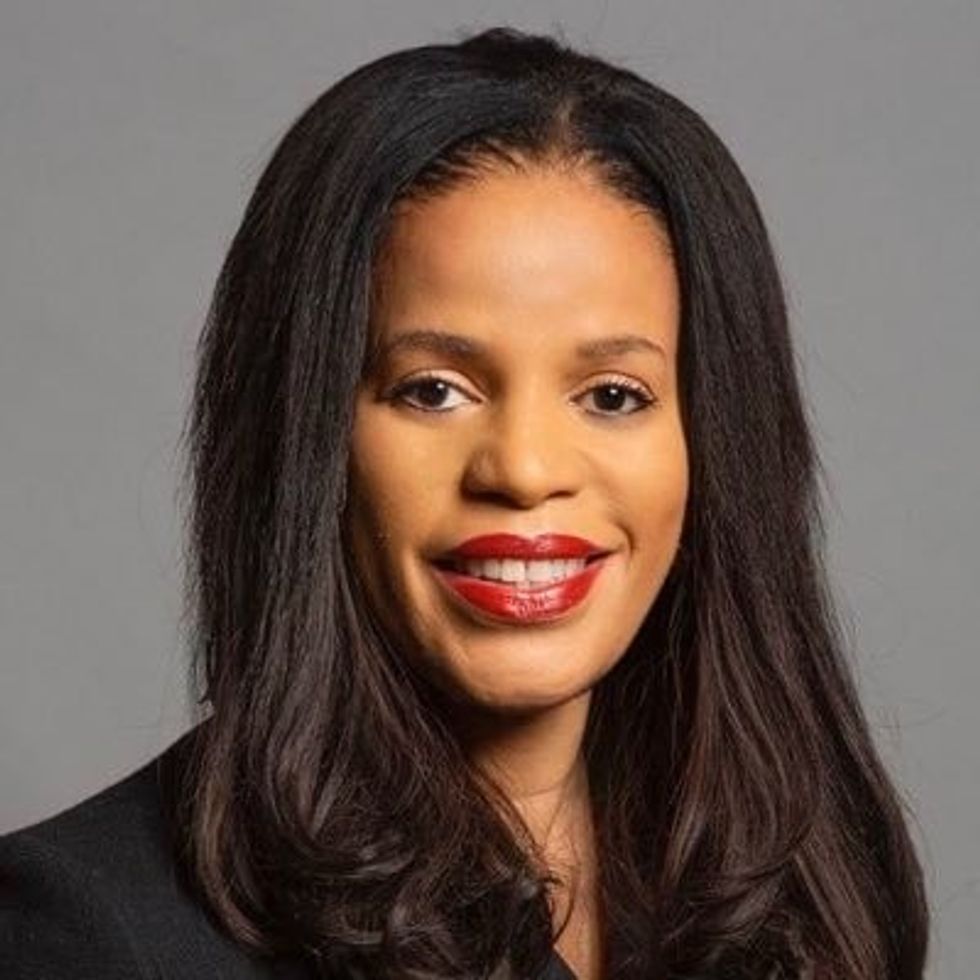
The Leicester East Independent MP, Claudia Webbe, echoed that message.
“The diversity of Leicester is our strength and something to be celebrated.
“We are the city where our minorities make up the majority.
“That is what makes Leicester special, and we are richer for this vibrant exchange of cultures.
“In the previous census data of 2011, over two thirds (68.6 per cent) of my constituency were from a non-white background.
“Nearly half (43.3 per cent) of our residents were born outside of the UK as opposed to 9.9 per cent nationally.
“Modern day Leicester East is defined by its diversity.”
Cities such as Birmingham and Bradford also have significant south Asian populations – 30 and 32 per cent respectively.
More than a quarter (25.5 per cent) in Bradford describe themselves as British-Pakistani.
British integration
Writing in this week’s Eastern Eye, the director of think-tank British Future, Sunder Katwala, commented, “These census details capture several long-term story of British integration.

“Britain’s ethnic diversity is spreading out geographically.
“The pace of ethnic change is now slower in inner London, as house prices and rents rise, and faster in the suburbs, home counties and beyond.
“Trevor Phillips (former equality chief) calls this pattern of ethnic desegration “the reversal of white flight”.
“One in ten households contain people from different ethnic groups.”
As expected, mixed race population is also rising.
“The census records a mixed-race population of 1.8 million (3 per cent) up from 1.2 million in 2011 and tripling from the 600,000 in 2001,” writes Katwala.
“The census data underestimates this phenomenon.
“Research finds twice as many people are of mixed ethnic heritage as tick the mixed-race census box, while others of mixed parentage can identify as black, Asian or white British.”
But Katwala cautioned reading too much into the controversial phenomenon of “British identity”.
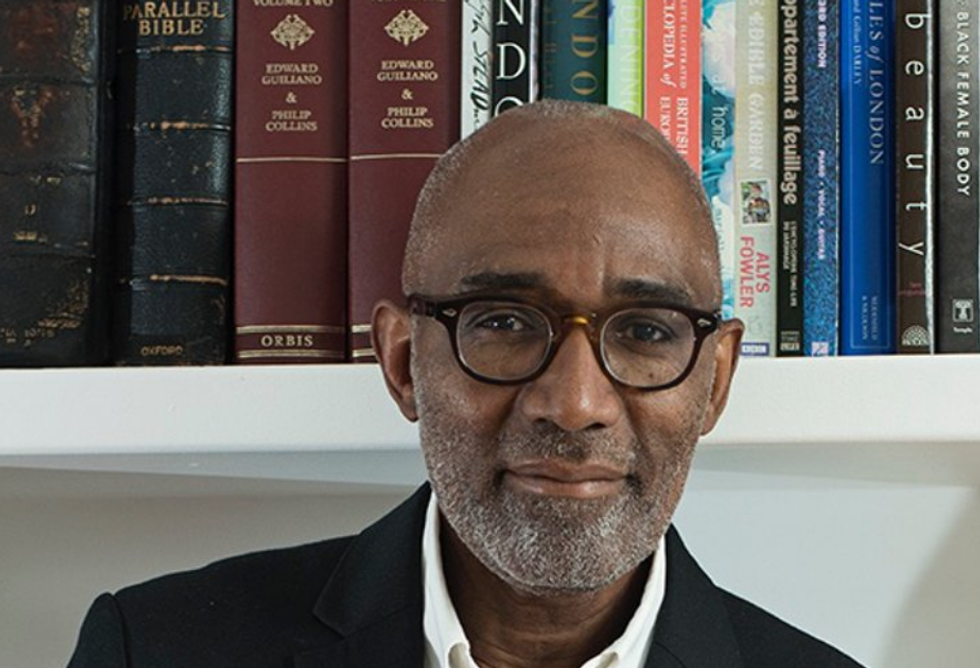
“A changing census form gives a misleadingly dramatic swing in national identity data.
“British was listed above English this time in England.
“Half of respondents just ticked the top label on the list - English in 2011, British in 2021.
“What the two censuses together show is how much those identities overlap for most people.”
Racism
Despite the past 60-years of mass immigration from former colonial countries, such as Indian, Pakistan, Bangladesh and Sri Lanka, Britain remains divided along the fault lines of race and religion.
Saying what religion we practiced remained voluntary.
For the first time under half (46.2 per cent) in England and Wales who answered said they were Christians.
Muslims now number 3.9 million, making up 6.5 per cent.
The number of Hindus went up to one million, or 1.7 per cent of those living in England and Wales, while the 524,140 Sikhs account for 0.9 per cent.
“The increase in Asian and black people to Britain has changed the demographic profiles and capabilities,” said Professor Anshuman Mondal, from the University of East Anglia.
“It’s changed the culture, the habits, whether in business or whether in other walks of life,” said Professor Anshuman Mondal, from the University of East Anglia.
“Late night shopping nowadays, is quite well accepted, it's quite mainstream, and you get massive retail chains having late night shopping hours.
“But when we were growing up, it was the Asian corner shop that introduced late night shopping.
“That's part of a big culture change.”
Think too of the changes to the nations' taste buds.
At the start of the fourth generation of south Asian settlers, Chicken Tikka Masala may be the national dish, and while politicians will have us believe Britain is not institutionally, structurally or systemically racist, that does not mean it is at peace with itself.
“Since the last census was done, we've had a resurgence of racism,” continued the professor whose expertise is post-colonial studies.
“We've had the default idiom for talking about any form of migration which now is variously coded in a kind of xenophobia and racism, which underlies the experiences of people.
“They're not uniform, alongside greater acceptance and greater integration of minority ethnic peoples, there’s been a continuity of racial exclusion and resentment.
“The sense that we don't truly belong here and so on.
“So, it's a very, very complicated picture which can be traced all the way back to the very difficult, antagonistic, conflicted intimacies of the colonial period.
“Britain doesn't do very well in trying to acknowledge and wrestle with that long history.
“It tries to airbrush, it tries to kind of give a very simplistic one-sided picture of a positive narrative about civilising, heathens and so on.”
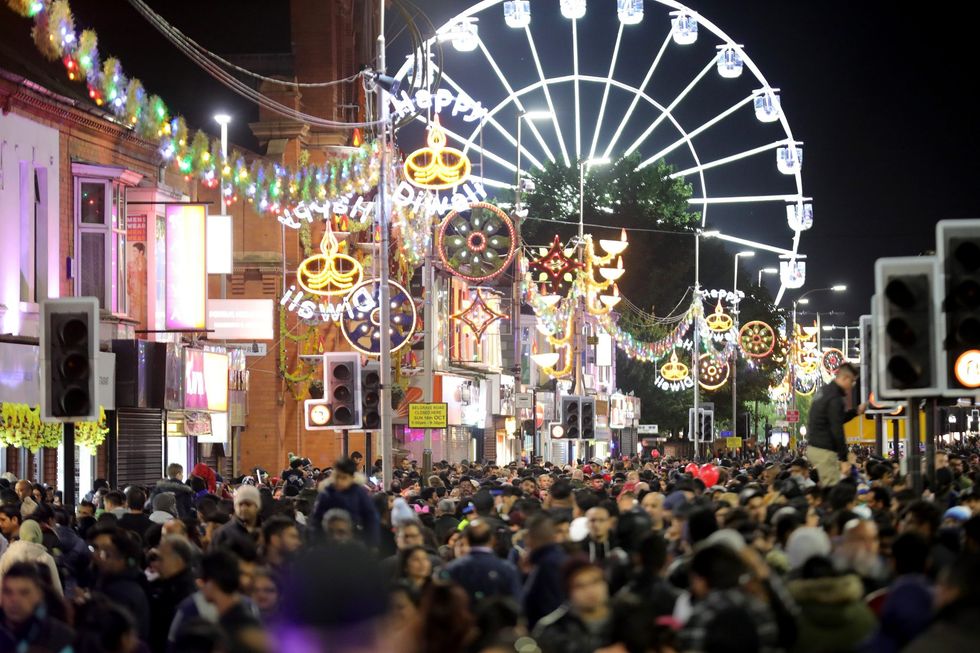
Better future?
But will things get better?
“It won't change without a struggle, that's my experience anyway,” Mondal responded.
“I don't think we can rely on it just to happen just like that.
“There is always going to be a sense in which Britishness equals whiteness amongst a certain group of people.
“That group of people are often very powerful and often have a lot of purchase on the cultural life in this country, on media, on politics.
“So, it will inevitably happen, but it won't happen easily.”
To highlight his point, the figures for race crimes speak for themselves.
Police in England and Wales recorded a 54 per cent rise in reported race crime during the past five fiscal years, jumping from about 71,200 in 2017-18 to almost 110,000 in 2021-22.
My view is that things are better than two generations ago.
Growing up in Britain in the 1970s and 1980s, we were subjected to “P*** bashing” every day, by gangs of white youths brainwashed by their parents and grandparents that we were smelly invaders.
Today it is more covert, and it has become fashionable to blame incidents of institutional, structural and system racism on “unconscious bias”.
From a south Asian prime minister, two home secretaries, a black equality minister, and Britain’s first black chancellor to those who wrote last year’s discredited race disparities report, there is a campaign to airbrush the sins of the past and now.
Every week, I am contacted by readers and sources who explain in tears how their complaints of racism are ignored.
In modern parlance, they are gaslighted, but we know it exists, and Eastern Eye has campaigned for the government to do much more to tackle racism for years.
The new commissioner of the Metropolitan Police, Sir Mark Rowley, agrees his force and officers must do more to stamp out racism.
The former crown prosecutor, Nazir Afzal, carried out an investigation into the London Fire Brigade and found it to be institutionally racist.
Afzal said senior people of colour in the BBC sent him messages complaining about racism.
It is all very well institutions saying they are doing their best.
Sadly, with ethnic minority numbers growing words are no longer enough, and the expectation is one of action to create a harmonious Britain which reflects the impending growing rainbow of nations.
“From my generation, and those younger than me, we've always known that this is our home,” the UEA expert told Eastern Eye.
“We go back to India, and we feel out of place there, we go back to Pakistan we feel out of place, and we go back to the Caribbean, and we feel a bit out of place.
“So, Britain, for all its tribulations, it’s still our home.
“We’ve made this place our home, we want to be accepted, and that will continue.”
